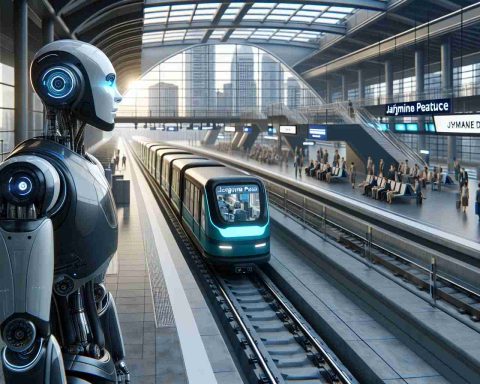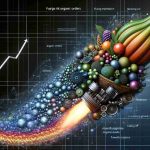The Fitopatological Station of O Areeiro, under the Pontevedra Provincial Council, is initiating an innovative project aimed at enhancing kiwi farming through artificial intelligence technology. This venture, known as Kiwi-Sens, is a collaboration with Kiwi Atlántico and is backed by a budget of €140,000, funded by the Galician Agency for Food Quality and the European Agricultural Fund for Rural Development.
Set to unfold over three years, the initiative seeks to modernize the cultivation practices for kiwis, a fruit deemed both vital and iconic for the Galician agricultural landscape. The kiwi is predominantly grown in rural areas, meaning this digital transformation will also offer local communities the chance to gain new insights and benefits.
The project, which also involves the Agricultural Research Center of Mabegondo in A Coruña, aims to introduce methods that will reduce water usage in kiwi farming. In addition, it seeks to enhance disease prediction in crops and improve agricultural decision-making processes.
To achieve these goals, researchers will implement a comprehensive monitoring system utilizing low-cost IoT technologies and artificial intelligence to optimize kiwi management across Galicia. The region, particularly Pontevedra province, is recognized as the nation’s leader in kiwi production, with over 877 hectares dedicated to cultivation and an annual yield exceeding 16,000 tons. The kiwi industry in Galicia has evolved significantly since its inception in 1969, continuously improving through ongoing research and development efforts.
Revolutionizing Kiwi Cultivation with AI in Galicia
The innovative project Kiwi-Sens is not just about enhancing the cultivation of kiwis in Galicia; it represents a significant shift towards sustainable agriculture. As farmers face increasing challenges related to climate change and resource management, the integration of artificial intelligence (AI) provides valuable solutions that could redefine agricultural practices in this region.
What is the role of AI in kiwi cultivation?
AI technology in kiwi farming helps in analyzing large datasets related to weather patterns, soil health, and crop performance. By employing machine learning algorithms, farmers can predict potential issues before they arise, such as pest infestations or nutrient deficiencies. This proactive approach allows for tailored interventions, reducing the use of pesticides and fertilizers.
What are the key challenges associated with implementing AI technology?
Despite the promising benefits, several challenges arise with the adoption of AI in kiwi cultivation:
1. High Initial Costs: Although the project has received funding, the initial investment required for advanced technology and training can be a barrier for many small farmers who may struggle with existing financial pressures.
2. Training and Adoption: Farmers need education and training on how to use AI and IoT tools effectively. There may be resistance to change from traditional farming practices.
3. Data Privacy Concerns: As more data is collected regarding agricultural practices, questions arise regarding data ownership and privacy, which need to be addressed to gain farmers’ trust.
What advantages does AI bring to kiwi farming?
There are numerous advantages associated with the integration of AI technology:
– Resource Efficiency: AI can optimize water use significantly. By analyzing soil moisture levels and weather forecasts, irrigation can be precisely managed, conserving water and reducing costs.
– Increased Yields: Enhanced disease prediction models and crop monitoring can lead to healthier plants and increased yields, supporting the livelihoods of local farmers and contributing to the economy.
– Sustainability: The reduction in chemical use aligns with global sustainability goals, promoting eco-friendly practices that benefit both the environment and community health.
What are the disadvantages or risks of AI in agriculture?
While there are clear benefits, the risks must also be considered:
– Dependence on Technology: Relying heavily on AI systems might reduce traditional farming knowledge and skills as farmers become dependent on technology for decision-making.
– Market Access: Larger operators who can afford the technology may outcompete smaller, less technologically integrated farms, creating a disparity in the agricultural landscape.
– Potential Job Displacement: The introduction of automated systems may lead to a reduction in labor needs for certain tasks, raising concerns about job security for agricultural workers.
Conclusion
The Kiwi-Sens project represents a significant leap towards modernizing kiwi cultivation in Galicia. By addressing critical questions and challenges, and leveraging the advantages of artificial intelligence, Galicia’s agricultural sector can enhance its sustainability and productivity. However, it is crucial to ensure that the transformation benefits all stakeholders and maintains the region’s rich agricultural heritage.
For more information on agriculture and technology, visit FAO and explore their resources on sustainable farming practices and innovation in agriculture.

















